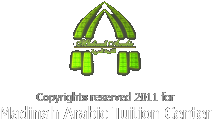Qu'ranic Arabic Complete
Course Syllabus
The following table is meant to give the student a high level view of the topics to be covered and is not exhaustive – e.g. many topics are covered in the course that are not included in the syllabus below.
We will always endeavour to customize the course by including / omitting additional topics to suit your exact requirements.
|
Level |
Topic Title |
Topic Details |
|
Level 1a |
A foundation course in reading and writing Arabic |
In this level, the student will learn:
|
|
Level 1b |
1. Greetings and acquaintance (knowing each other) |
In this level, the student will learn:
|
|
2. Family |
In this level, the student will learn:
|
|
|
3. The house |
In this unit the student will learn:
|
|
|
4. Daily life |
In this unit, the student will learn:
|
|
|
5. Food and beverage |
In this unit, the student will learn:
|
|
|
6. The prayer |
In this unit, the student will learn:
|
|
|
7. Study |
In this unit, the student will learn:
|
|
|
8. Work |
In this unit, the student will learn:
|
|
|
9. Shopping |
In this unit, the student will learn:
|
|
|
10. The weather |
In this unit, the student will learn:
|
|
|
11. People and places |
In this unit, the student will learn:
|
|
|
12. Hobbies |
In this unit, the student will learn:
|
|
|
13. Travel |
In this unit, the student will learn:
|
|
|
14. Pilgrimage and Umrah |
In this unit, the student will learn:
|
|
|
15. Health |
In this unit, the student will learn:
|
|
|
16. Vacation |
In this unit, the student will learn:
|
|
|
Level 2 |
1-Health care |
In this unit, the student will learn:
|
|
2-Recreation |
In this unit, the student will learn:
|
|
|
3-Matrimonial life |
In this unit, the student will learn:
|
|
|
4-City life |
In this unit, the student will learn:
|
|
|
5-Culture and education. |
In this unit, the student will learn:
|
|
|
6-Professions |
In this unit, the student will learn:
|
|
|
7-Learning the Arabic language |
In this unit, the student will learn:
|
|
|
8-Prizes |
In this unit, the student will learn:
|
|
|
9-Communication |
In this unit, the student will learn:
|
|
|
10- Cleanliness |
In this unit, the student will learn:
|
|
|
11- Islam |
In this unit, the student will learn:
|
|
|
12- Youth |
In this unit, the student will learn:
|
|
|
13- Islamic world |
In this unit, the student will learn:
|
|
|
14- Security |
In this unit, the student will learn:
|
|
|
15- Pollution
|
In this unit, the student will learn:
|
|
|
16- Energy |
In this unit, the student will learn:
|
|
|
Level 3 |
1-Religion / Miracles in Islam |
In this unit, the student will learn:
|
|
2-A Muslim’s day |
In this unit, the student will learn:
|
|
|
3-The Muslim minorities in the world |
In this unit, the student will learn:
|
|
|
4-The Sunnah of the Prophet (PBUH) |
In this unit, the student will learn:
|



